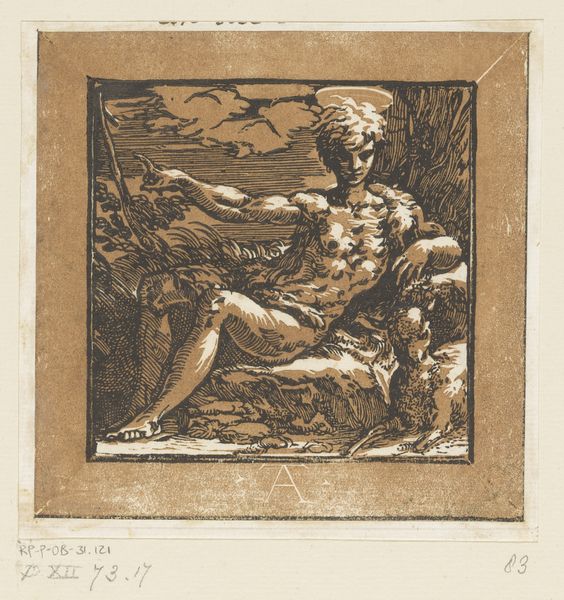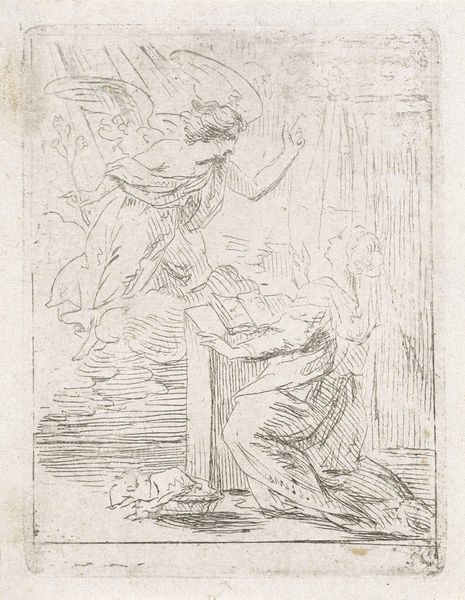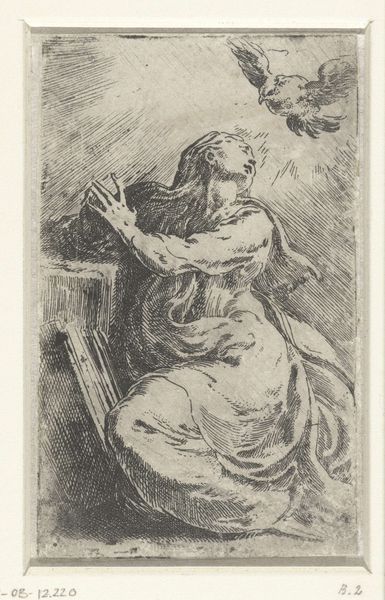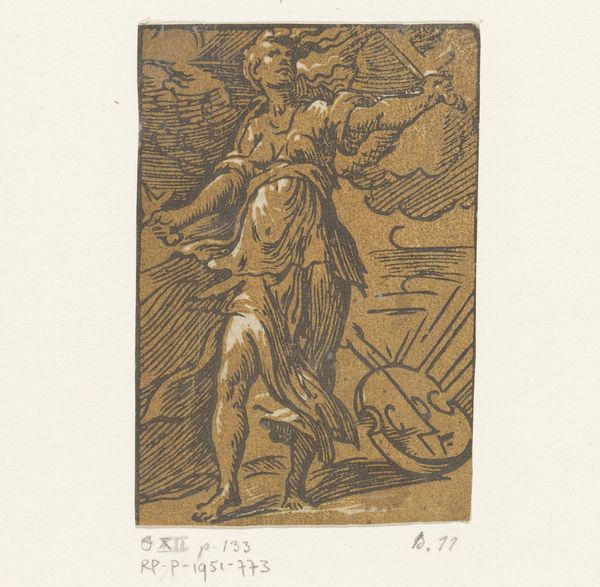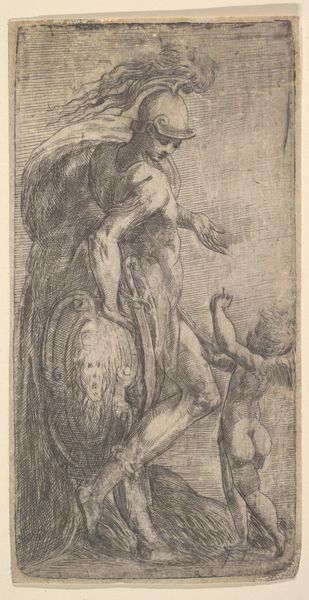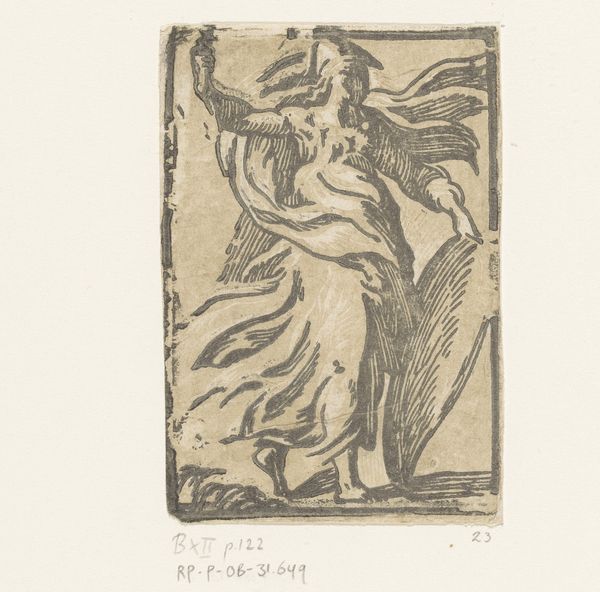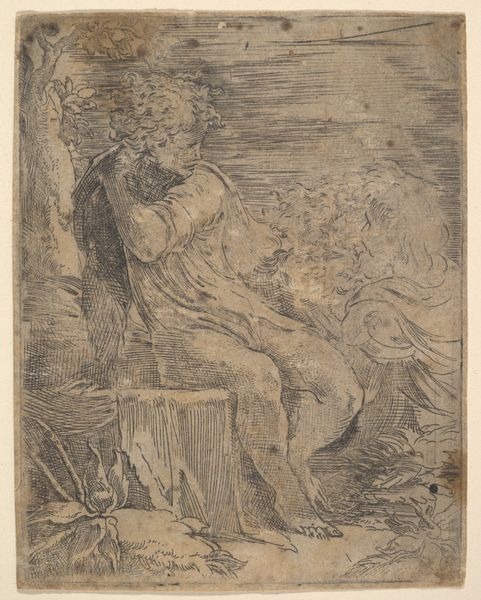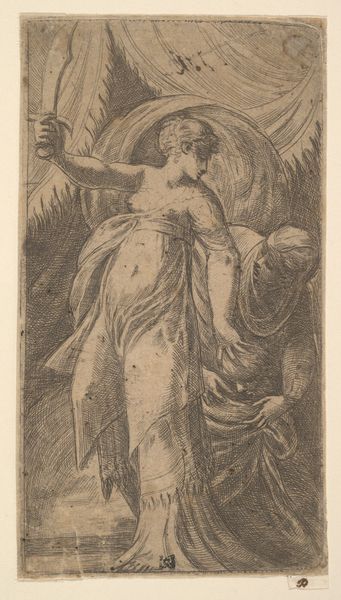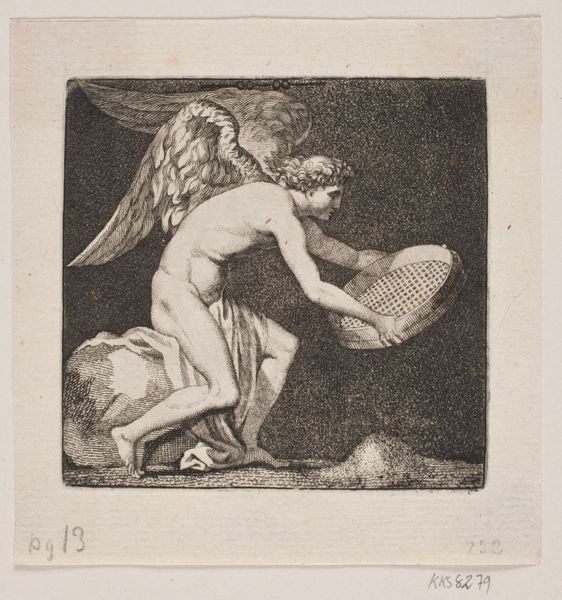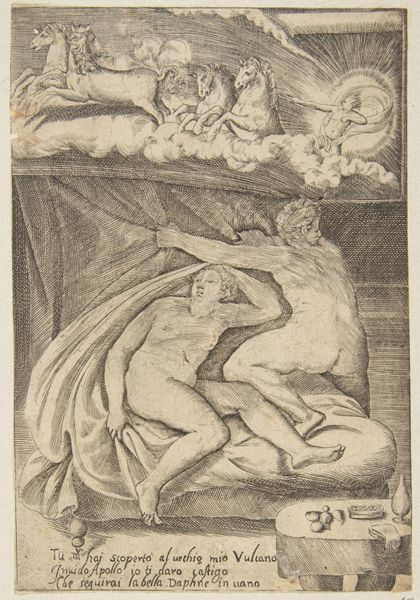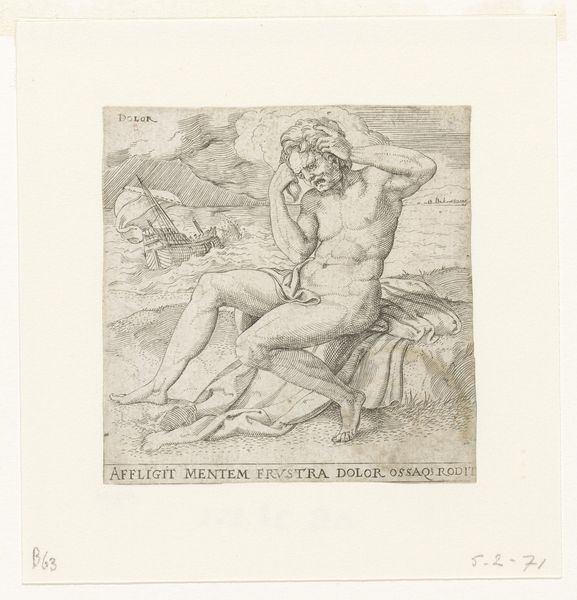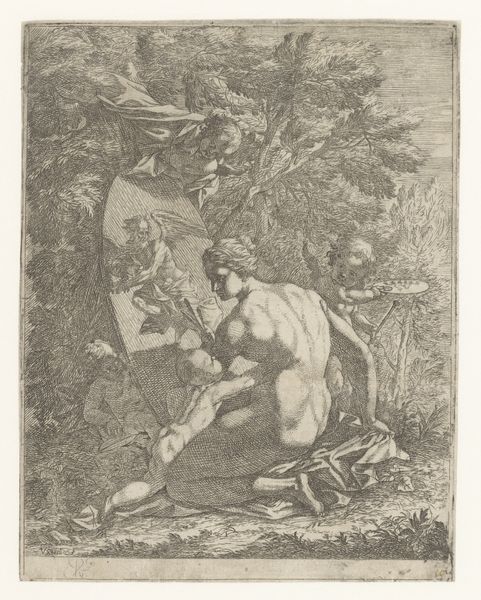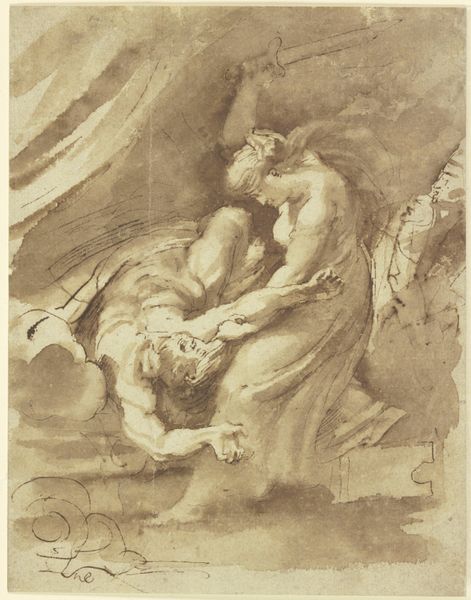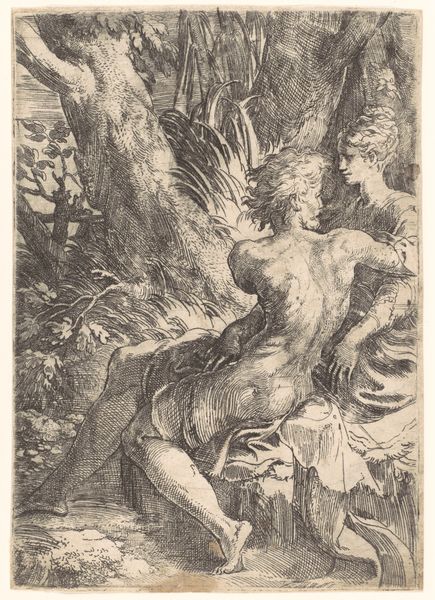
drawing, print, etching
#
drawing
# print
#
etching
#
etching
#
mannerism
#
figuration
#
history-painting
Dimensions: height 120 mm, width 118 mm
Copyright: Rijks Museum: Open Domain
Curator: Here we have "Man with Lute", an etching by Antonio da Trento, created sometime between 1520 and 1550. What are your first thoughts? Editor: It evokes a strong sense of melancholy, doesn’t it? The man's posture, the subdued tones of the etching, everything seems to weigh heavily on him. He’s almost imprisoned in the composition. Curator: Precisely! Notice how Trento utilizes the etching technique. The density and direction of the lines create both form and shadow, imbuing the figure with this incredible sculptural weight, a signature element of Mannerism. It also draws on certain archetypes of lamentation found throughout art history, think classical depictions of melancholy philosophers. Editor: And consider that instrument. The lute symbolizes harmony and balance but is often associated with unrequited love and longing. The figure’s pained expression, the discarded instrument... it becomes a statement on social constraints and the burdens of courtly love in that era, or maybe on the limits placed upon the artist himself. Curator: An excellent point! I see it also in light of broader visual language that represents both physical and metaphysical balance in art and in Renaissance humanist philosophy: reason versus emotion. Editor: And perhaps the physical discomfort inherent in playing stringed instruments becomes an analogy for societal tension as well. Curator: It could suggest, quite radically for its time, a critical evaluation of existing power dynamics, absolutely. Thank you, those thoughts prompt reflection. Editor: Indeed, artwork as a form of resistance or contemplation during a restrictive epoch is something very fascinating to reflect upon.
Comments
No comments
Be the first to comment and join the conversation on the ultimate creative platform.
